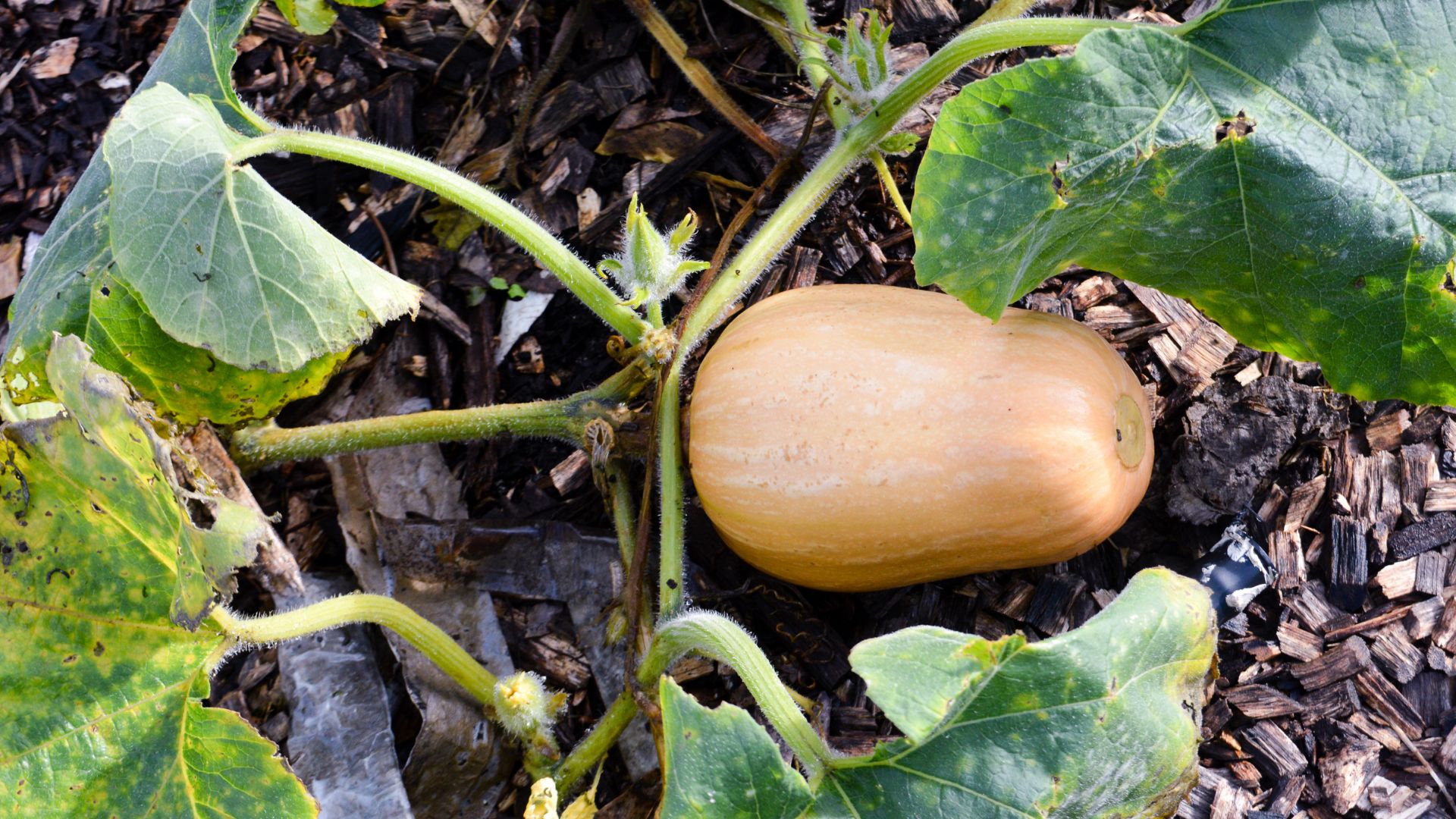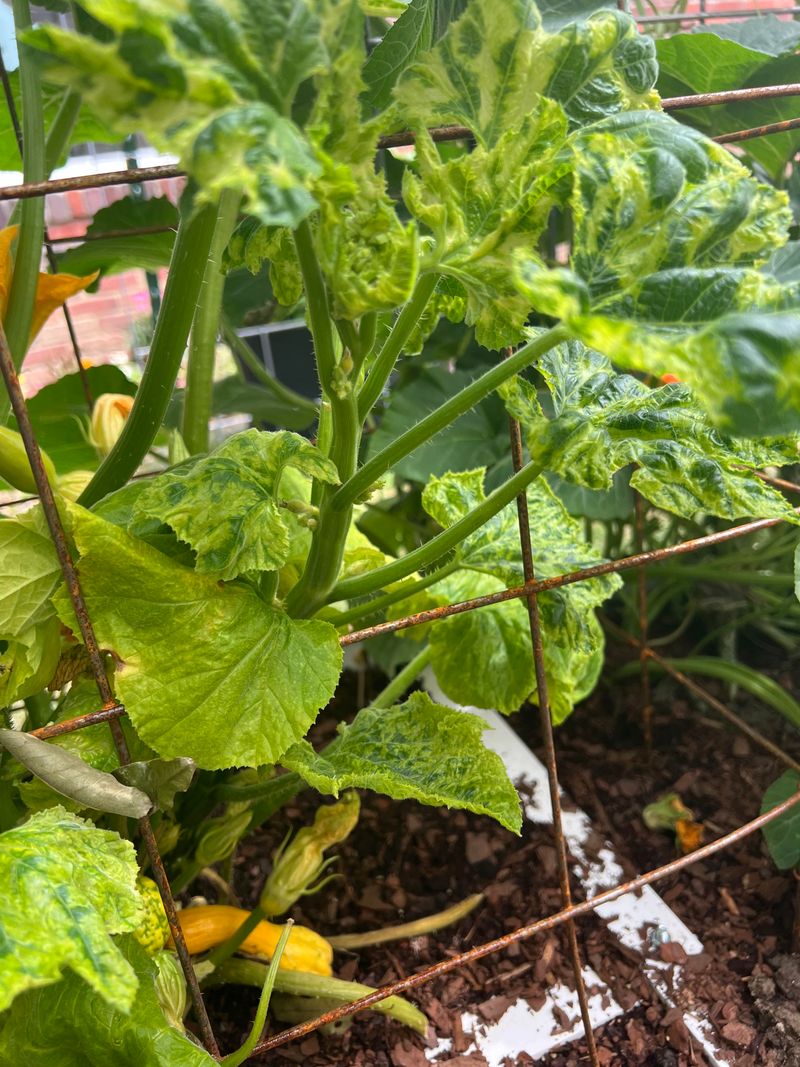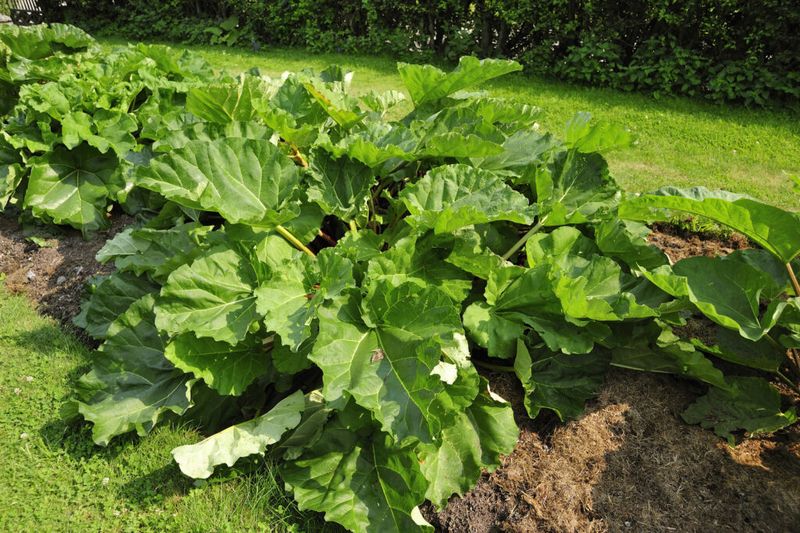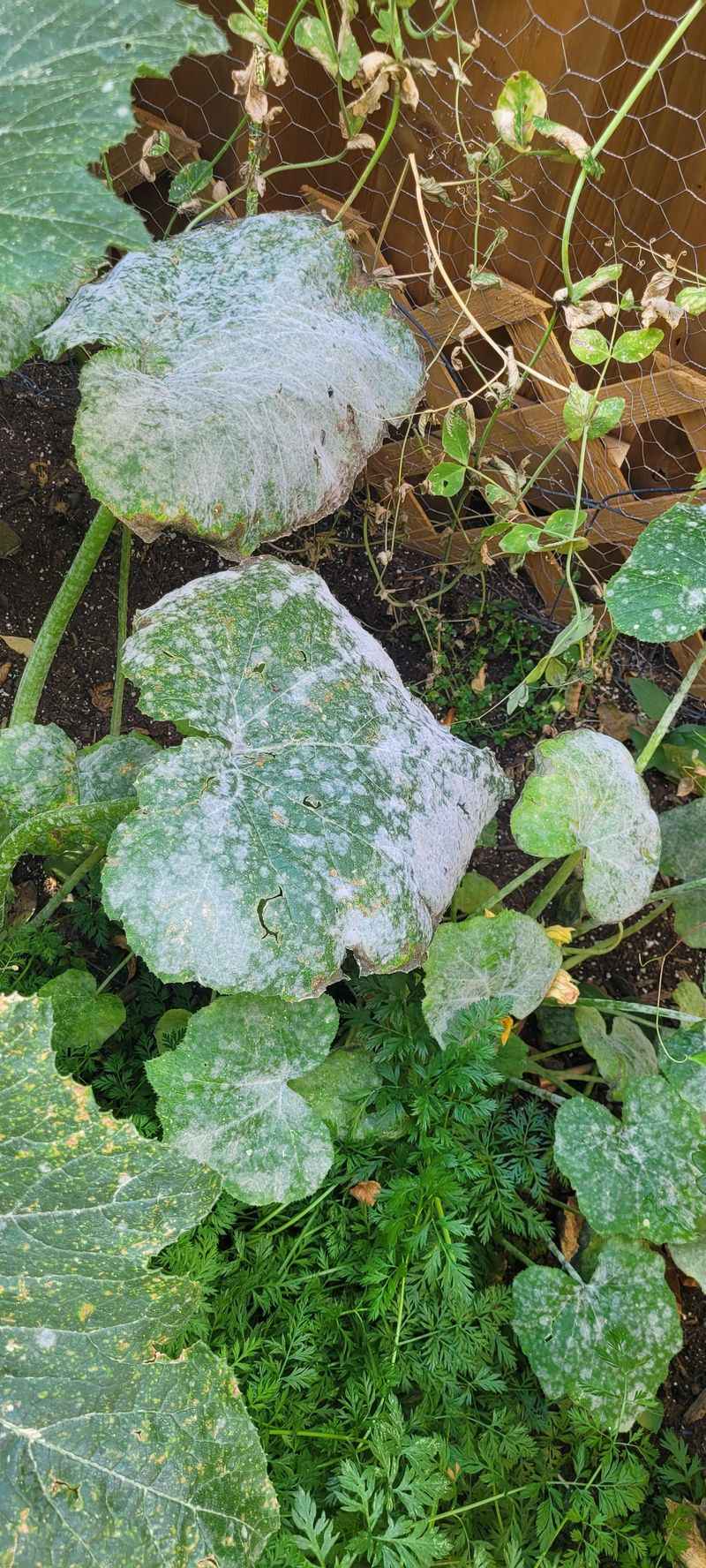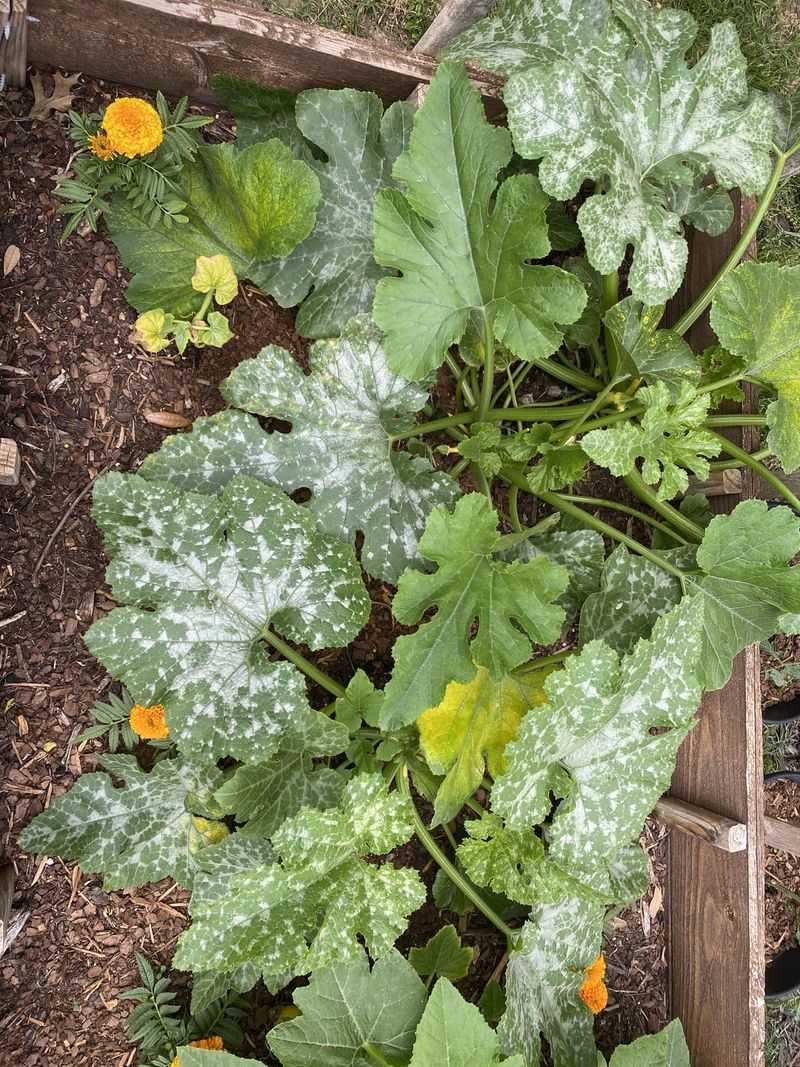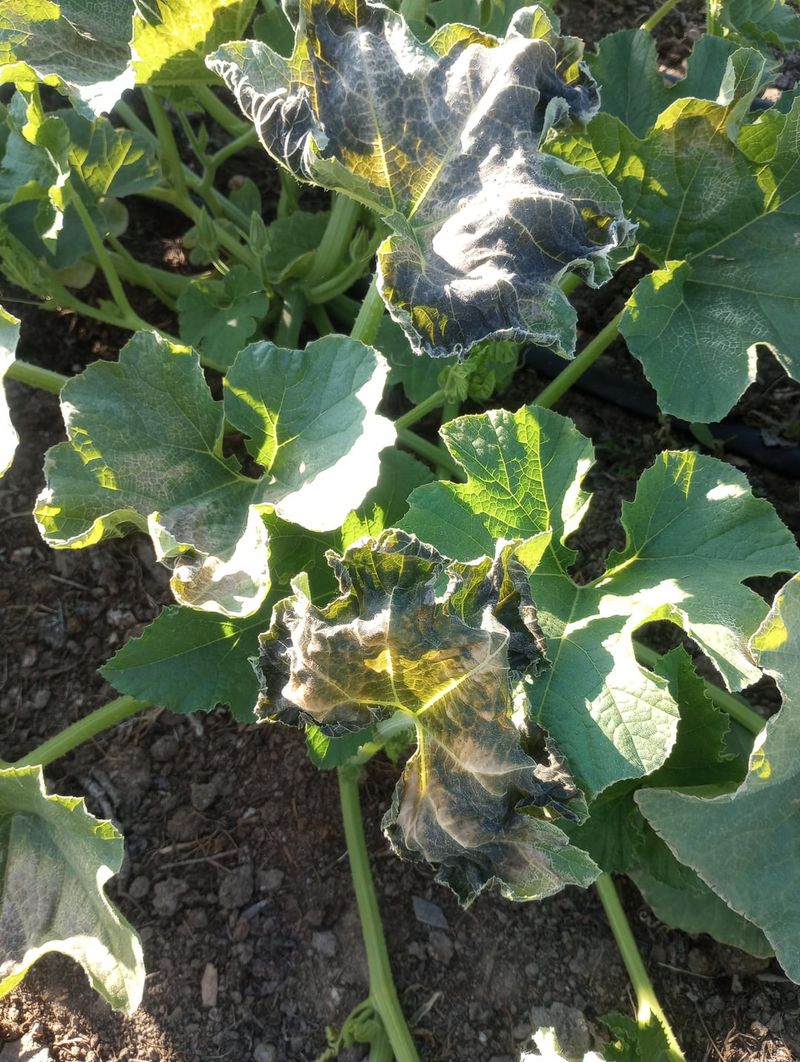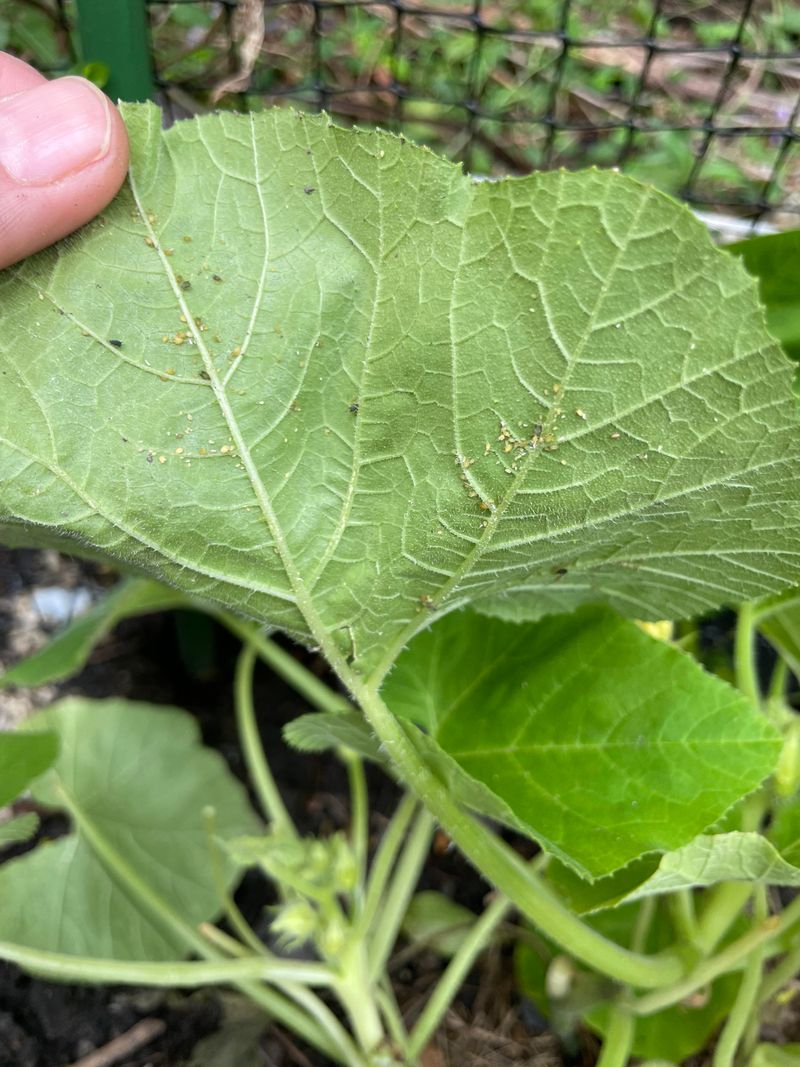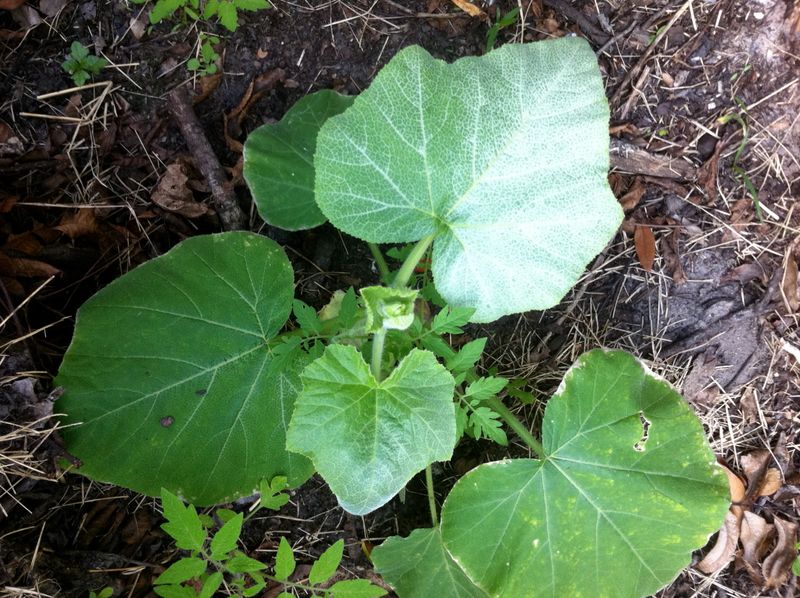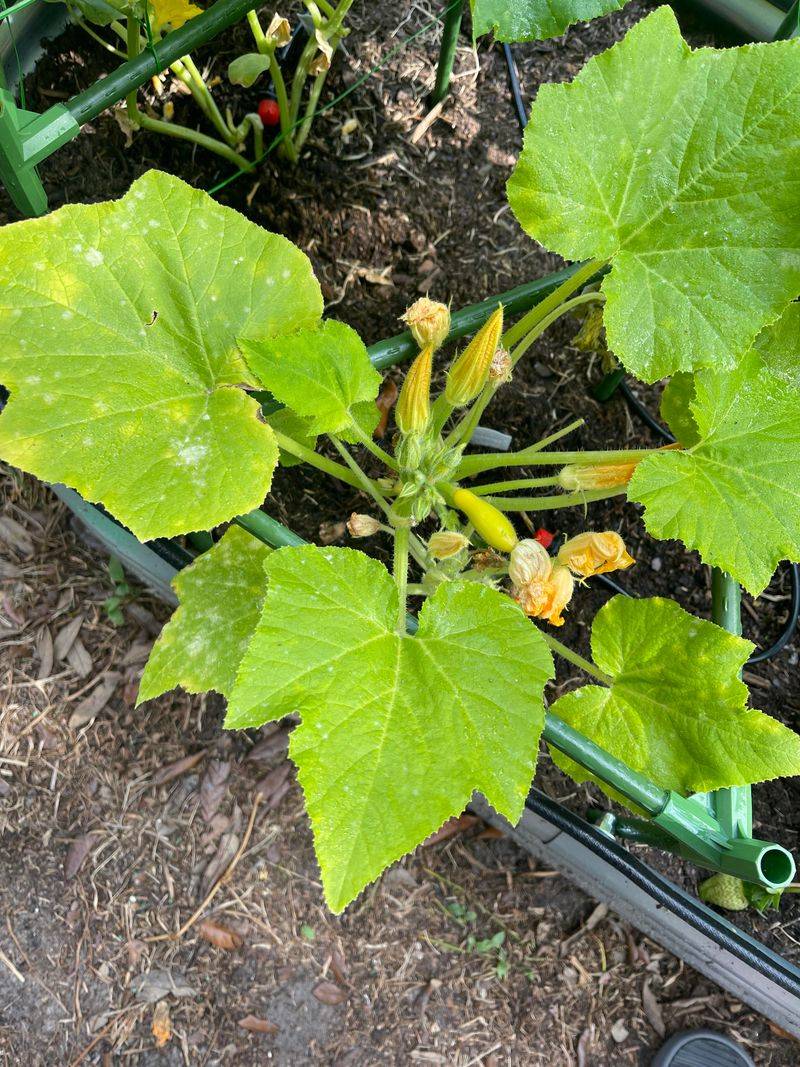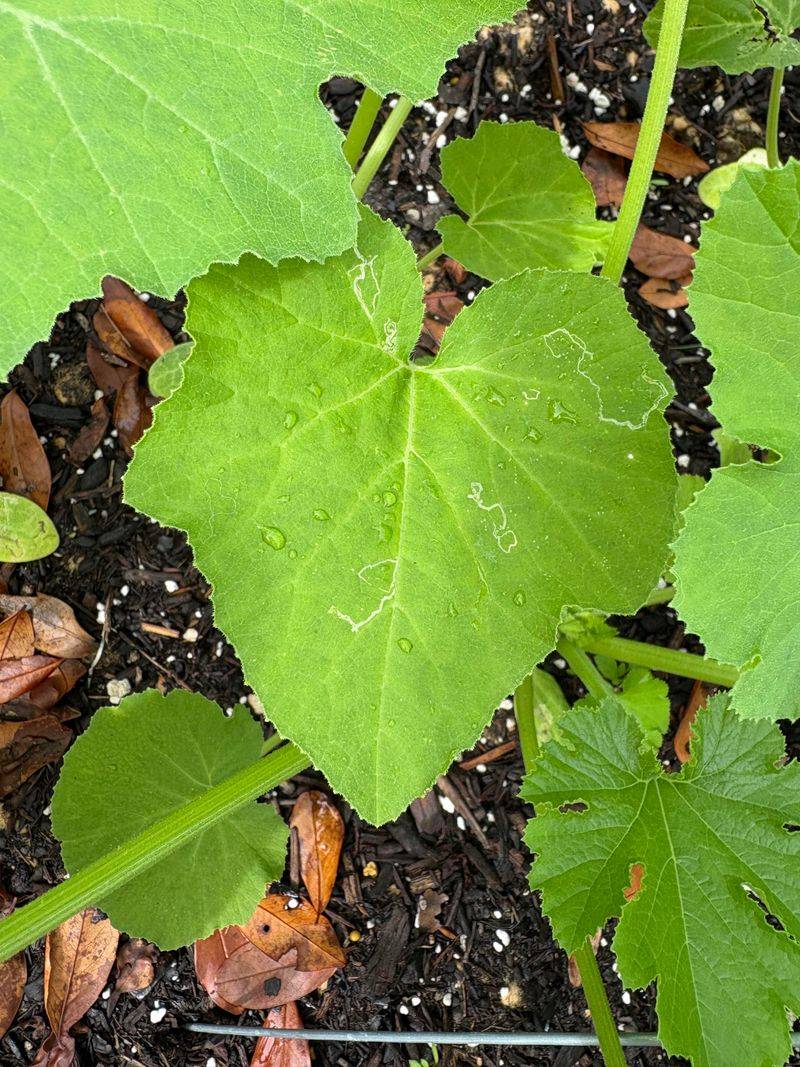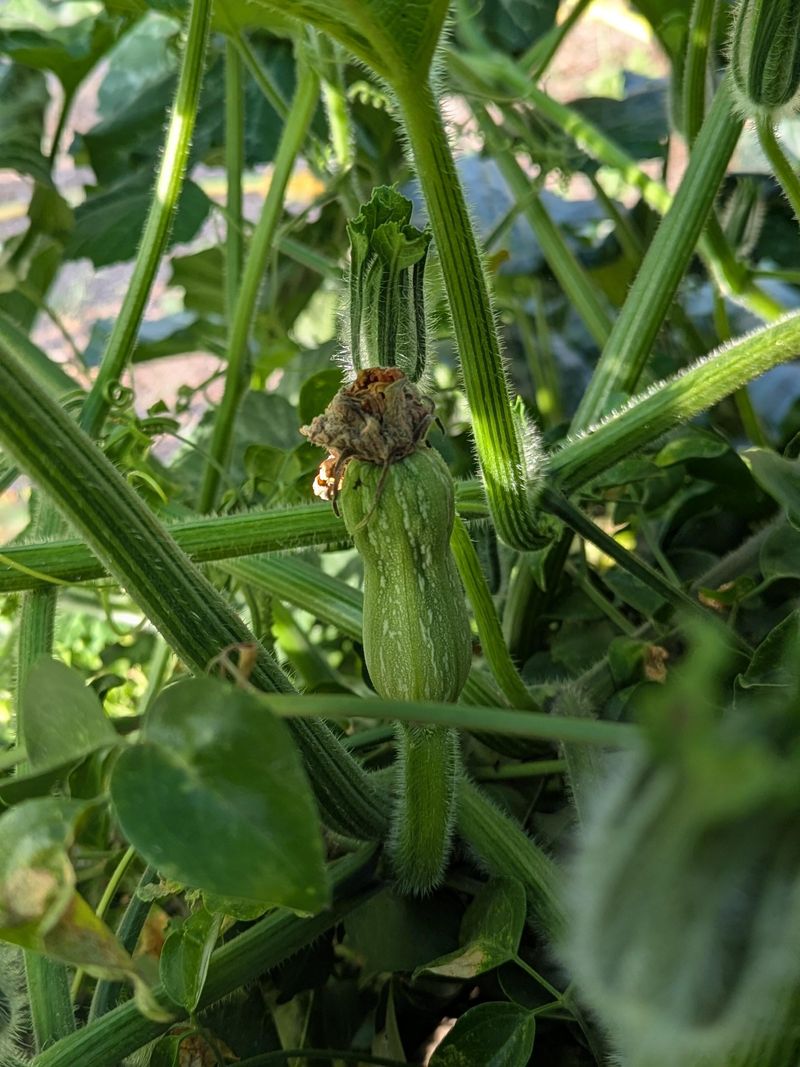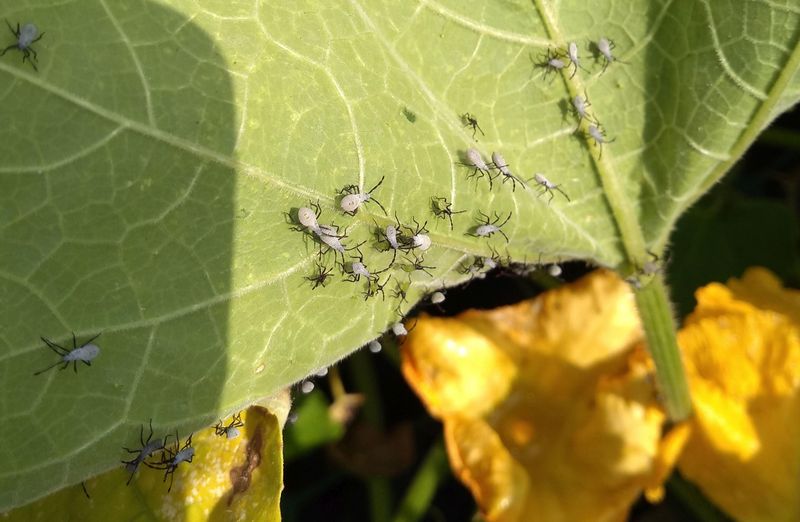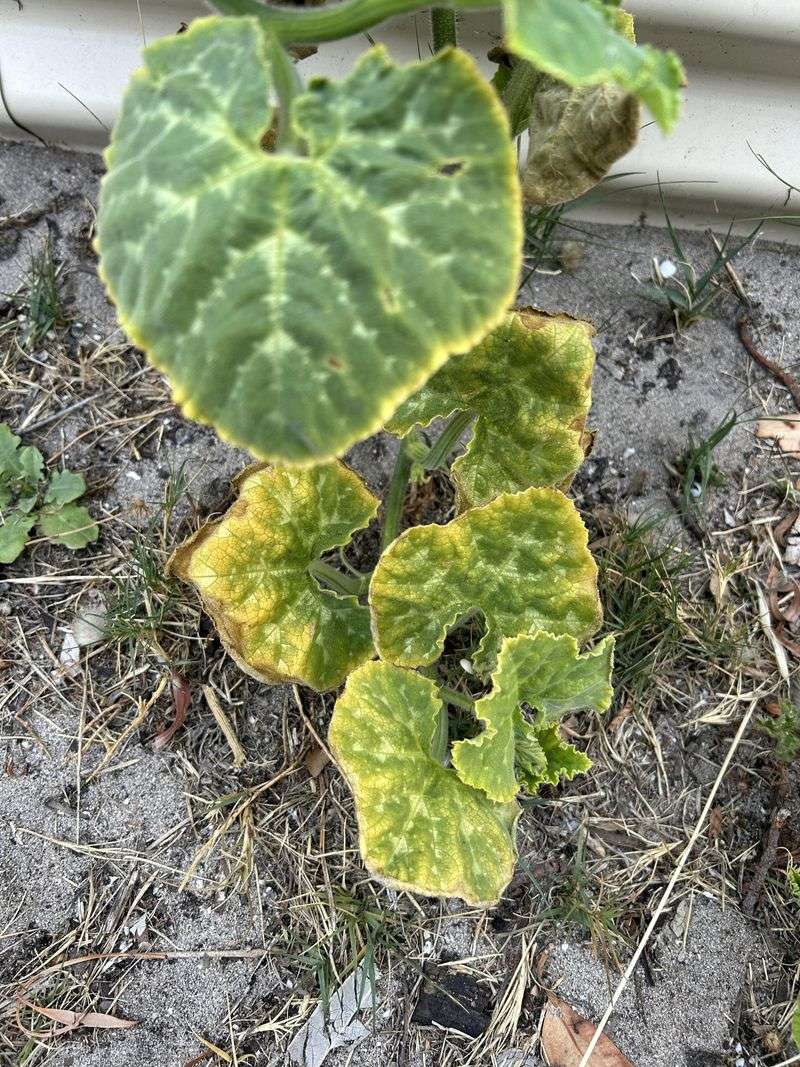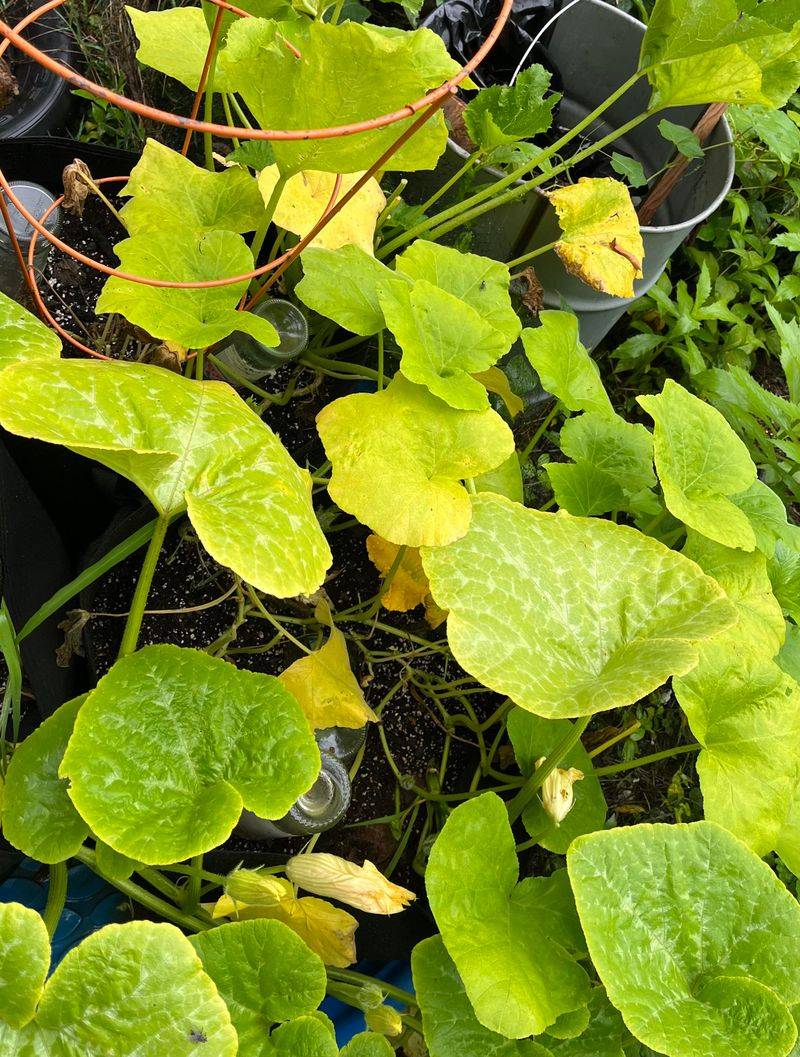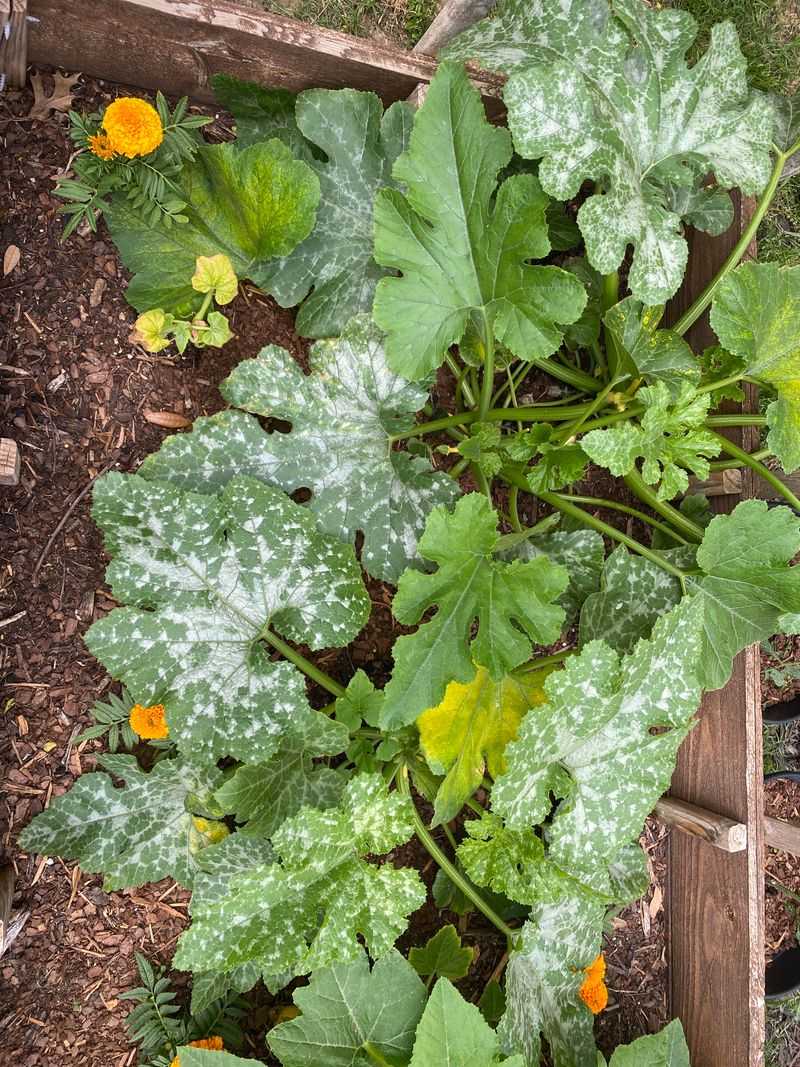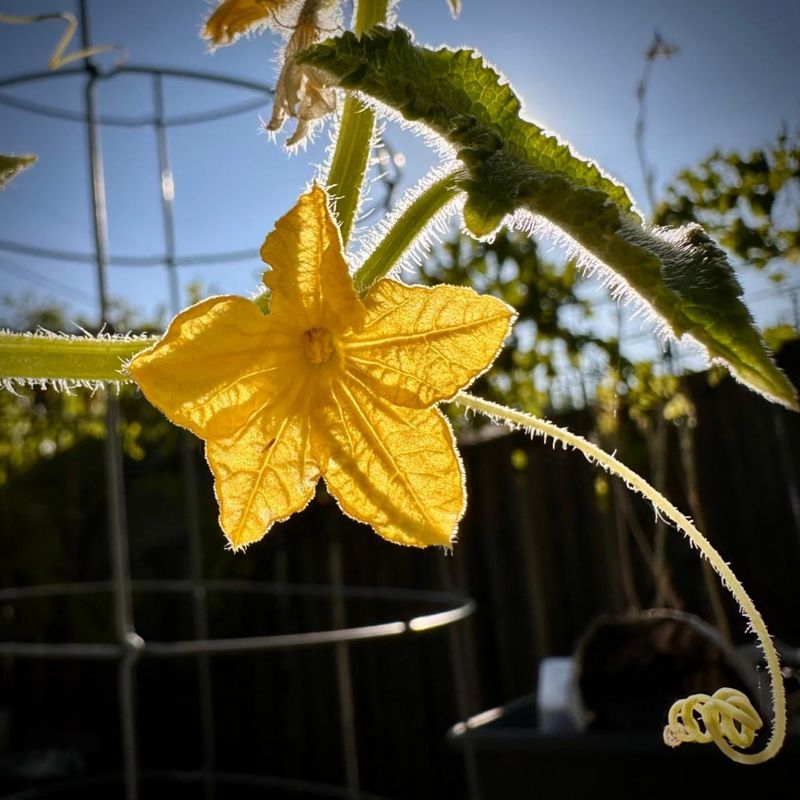Growing squash in Pennsylvania gardens can be rewarding, but those curling leaves often signal trouble brewing. When your healthy plants suddenly develop twisted foliage, it’s time to play detective in your vegetable patch. Understanding what’s causing this common problem can save your summer harvest before it’s too late.
Pennsylvania’s unique climate creates specific challenges for squash growers that folks in other regions might not face. Our combination of humid summers and occasional drought spells can stress plants in ways that manifest as leaf curling.
I’ve spent years troubleshooting vegetable gardens across Pennsylvania counties, and squash leaf curling remains one of the most common complaints I hear from local gardeners. Let’s explore the sixteen most likely causes of this frustrating problem in our region, along with practical solutions you can implement today.
1. Squash Bug Infestations
These sneaky pests love Pennsylvania’s summer warmth. They pierce squash leaves to feed on plant sap, causing immediate curling as the tissue loses moisture. Adult bugs are grayish-brown and about half an inch long.
Look for their distinctive bronze-colored egg clusters on the undersides of leaves. I’ve found that early morning inspections work best for catching them in action. Regular application of insecticidal soap can help control light infestations before they become severe.
2. Cucumber Mosaic Virus
A common viral disease in Pennsylvania vegetable gardens that aphids spread from plant to plant. Infected squash leaves curl dramatically while developing a mottled yellow pattern. The virus stunts growth and reduces yields significantly.
Unfortunately, there’s no cure once plants are infected. My neighbor lost her entire zucchini crop to this virus last summer after a particularly bad aphid season. Prevention through aphid control and removing infected plants quickly is your best defense in our humid climate.
3. Calcium Deficiency
Many Pennsylvania gardens, especially in areas with acidic soil, suffer from calcium shortages. When squash plants can’t access enough calcium, young leaves curl inward and develop brown edges. The problem often shows up during rapid growth phases.
Testing your soil is essential – something I learned after two failed seasons. Adding crushed eggshells or agricultural lime can correct the issue. Eastern Pennsylvania’s naturally acidic soils are particularly prone to calcium deficiencies during wet growing seasons.
4. Spider Mite Damage
Barely visible to the naked eye, spider mites thrive during Pennsylvania’s hot, dry spells. They create fine webbing on leaf undersides while sucking plant juices. The tiny feeding wounds cause stippling, yellowing, and eventually curling.
During last summer’s July drought, these pests exploded across Bucks County gardens. Regular strong sprays of water can dislodge colonies before damage becomes severe. For organic control, introduce predatory mites – they work wonders in our climate where chemical solutions often fail.
5. Powdery Mildew Infection
The high humidity in Pennsylvania’s summer months creates perfect conditions for powdery mildew. White powdery patches appear on leaves before they begin curling and dying back. The fungus blocks sunlight and interferes with photosynthesis.
Proper spacing between plants improves airflow – a lesson I learned after crowding my garden beds for years. Morning watering allows foliage to dry before evening. A milk spray (1 part milk to 9 parts water) applied weekly works surprisingly well as a preventative in our humid climate.
6. Herbicide Drift
Weed killers applied on windy Pennsylvania days can drift onto garden vegetables. Even tiny amounts cause characteristic cupping and twisting of squash leaves. The damage often appears one-sided or affects only the plants closest to the source.
This happened in my community garden when a neighbor sprayed on a breezy day. Affected plants rarely recover completely but may produce some harvest if damage is minimal. Creating windbreaks and communicating with neighbors about spray schedules helps prevent this increasingly common problem in suburban Pennsylvania gardens.
7. Aphid Colonies
Tiny green or black insects cluster on new growth and leaf undersides, causing curling as they feed. Pennsylvania’s fluctuating spring temperatures create perfect conditions for aphid population explosions, especially during cool, wet periods.
The honeydew they excrete attracts ants and promotes sooty mold growth. I’ve had great success controlling them by encouraging beneficial insects like ladybugs and lacewings. A strong spray of water or insecticidal soap application every few days breaks their reproductive cycle before serious damage occurs.
8. Inadequate Watering
Inconsistent moisture leads to stress that manifests as leaf curling. Pennsylvania’s clay-heavy soils often drain poorly, creating alternating conditions of drought and waterlogging that confuse gardeners.
Deep, infrequent watering encourages roots to grow downward rather than staying in the surface soil. After switching to soaker hoses on timers, my squash plants showed remarkable improvement. Adding organic matter annually helps create the well-draining yet moisture-retentive soil that squash plants need in our unpredictable climate.
9. Excessive Heat
During Pennsylvania’s July and August heat waves, squash leaves curl inward as a defense mechanism to reduce water loss. The edges may appear scorched while the plant temporarily stops producing flowers and fruit.
Providing afternoon shade with row covers helps vulnerable plants survive intense heat. Last summer, I used old window screens propped on bricks to create partial shade. Mulching heavily with straw keeps soil temperatures more stable and retains crucial moisture during those brutal eastern Pennsylvania heat spells.
10. Squash Leaf Miners
These pests create winding trails inside leaf tissue, causing sections to collapse and curl. The damage is particularly common in Pennsylvania’s southeastern counties where the insect overwinters successfully in our relatively mild conditions.
The adult flies lay eggs that hatch into larvae that feed between leaf surfaces. Covering young plants with floating row covers prevents egg-laying. When I spotted the first signs last season, I immediately removed affected leaves, which stopped the infestation from spreading through my entire patch.
11. Boron Deficiency
Pennsylvania’s leached soils sometimes lack this micronutrient essential for cell wall development. When boron is insufficient, young squash leaves become brittle and curl while developing a crinkled texture. Fruit often forms incompletely with scarred surfaces.
Adding compost regularly helps prevent most micronutrient deficiencies. For acute problems, a foliar spray containing boron can provide quick relief. After experiencing this issue in my western Pennsylvania garden, I now add a tablespoon of borax to 5 gallons of water as a once-yearly soil drench.
12. Bacterial Wilt Disease
Transmitted by cucumber beetles that thrive in Pennsylvania’s wet springs, bacterial wilt causes sudden wilting and curling of leaves. Individual stems collapse while others temporarily remain healthy. The bacteria block water movement through the plant’s vascular system.
Cut a wilted stem and look for stringy slime when you touch the cut surfaces together – a telltale sign I discovered after years of misdiagnosing this problem. Controlling the striped cucumber beetle is essential since there’s no cure once infection occurs. Yellow sticky traps help monitor beetle populations before they reach damaging levels.
13. Magnesium Shortage
Heavy spring rains in Pennsylvania can leach magnesium from garden soils. Affected squash plants develop yellowing between leaf veins while edges curl upward. The deficiency typically appears first on older leaves at the base of the plant.
Epsom salt (magnesium sulfate) provides a quick fix when sprinkled around plants before rain. After my county extension agent identified this as the problem in my garden, I’ve made it a habit to add a tablespoon per plant early in the season. Our region’s acidic soils particularly benefit from this simple amendment.
14. Nitrogen Overload
Too much nitrogen fertilizer creates lush, dark green growth that curls and becomes susceptible to disease. Pennsylvania gardeners often over-fertilize when plants look slightly yellow from spring’s cool soil temperatures.
The excessive growth attracts more pests while reducing fruit production. I learned this lesson the hard way after applying chicken manure too generously. Balanced organic fertilizers with moderate nitrogen levels work better in our climate. A soil test provides the best guidance for your specific garden conditions.
15. Downy Mildew Infection
Pennsylvania’s frequent summer thunderstorms create perfect conditions for downy mildew. Yellow patches appear on leaf tops while purplish-gray fuzzy growth develops underneath. Leaves curl and die as the infection progresses rapidly during humid weather.
Unlike powdery mildew, this disease thrives in wet conditions. Morning watering and proper spacing are crucial preventative measures. After losing half my crop two years ago, I now apply copper-based fungicides preventatively when weather forecasts predict several consecutive days of rain and high humidity.
16. Root Knot Nematodes
These microscopic soil-dwelling worms attack plant roots, forming distinctive galls that limit water uptake. Above ground, the restricted water flow causes leaves to yellow and curl, especially during Pennsylvania’s afternoon heat.
Plants appear drought-stressed even with adequate soil moisture. I’ve implemented annual cover crops of marigolds to suppress populations naturally. Adding compost increases beneficial soil organisms that help keep nematodes in check in our region’s typically acidic garden soils.

